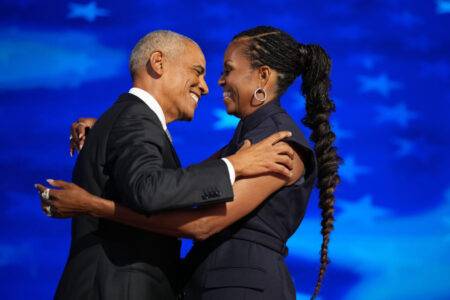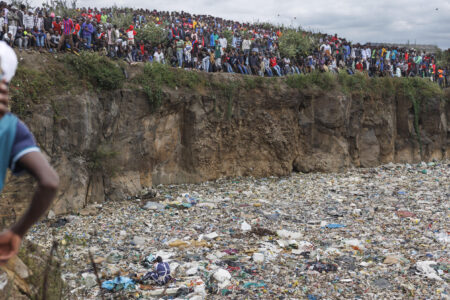Moscow and Beijing have agreed that North Korea should freeze its nuclear and missile programs, while the US and South Korea should abstain from holding war games in the region, Russian President Vladimir Putin said.
Russia and China will be taking further “unspecified” countermeasures to the US plan to deploy an anti-missile system in South Korea, according to Chinese news agency, Xinhua.
According to the statement, Moscow and Beijing urge all those involved in the system’s deployment to consider the escalation in tensions it would lead to and to exercise restraint. But the two also reaffirm their commitment to a nuclear-free North Korea and believe diplomacy should be the way forward.
The statement comes shortly after a Thursday meeting co-chaired by Russian Deputy Foreign Minister Igor Morgulov and Chinese Assistant Foreign Minister Kong Xuanyou.Moscow and Beijing stressed the importance of taking North Korea’s concerns over its safety into consideration, calling them “justified.”
“The two sides stress that justified North Korean concerns should be respected,” a joint statement by Russia’s and China’s foreign ministers reads. “Other countries should make certain moves to resume the negotiations, creating a peaceful disposition and mutual trust.”
While condemning Pyongyang’s nuclear and missile tests as violating UN Security Council resolutions, Moscow and Beijing urged the United States to immediately halt its deployment of THAAD anti-missile systems to South Korea.“The sides agree that the deployment of THAAD anti-missile systems to Northeast Asia gravely damages strategic safety interests of regional powers, including Russia and China and do not contribute to the de-nuclearization of the Korean Peninsula, as well as towards establishing peace and stability in the region,” the statement reads.
The Terminal High Altitude Area Defense (THAAD) system is to be deployed on a golf course in South Korea, prompting worries from Russia and China about their security being compromised by the anti-missile system’s powerful radar.
One of the concerns the two have with the US system is its radar’s ability to peer into the Russian and Chinese territory.Seoul responded almost immediately by saying that THAAD deployment is “a sovereign and self-defensive measure.”
South Korea has also complained about China taking what it sees as “retaliatory measures” over the decision to deploy. These included a partial ban on Korean TV, as well as some pop artists. The automotive industry was also targeted, and an investigation was launched into Korean retail giant Lotte, which does business in China.
The thinking over the summer was that the North Korean threat to its southern neighbour must be kept in check. Pyongyang’s rising number of ICBM tests and its escalating rhetoric against Seoul contributed to this. Brushing aside criticism by China and Russia, Washington said that its hardware in Korea will be focused “solely” on countering the North Korean nuclear and ballistic missile threat.





